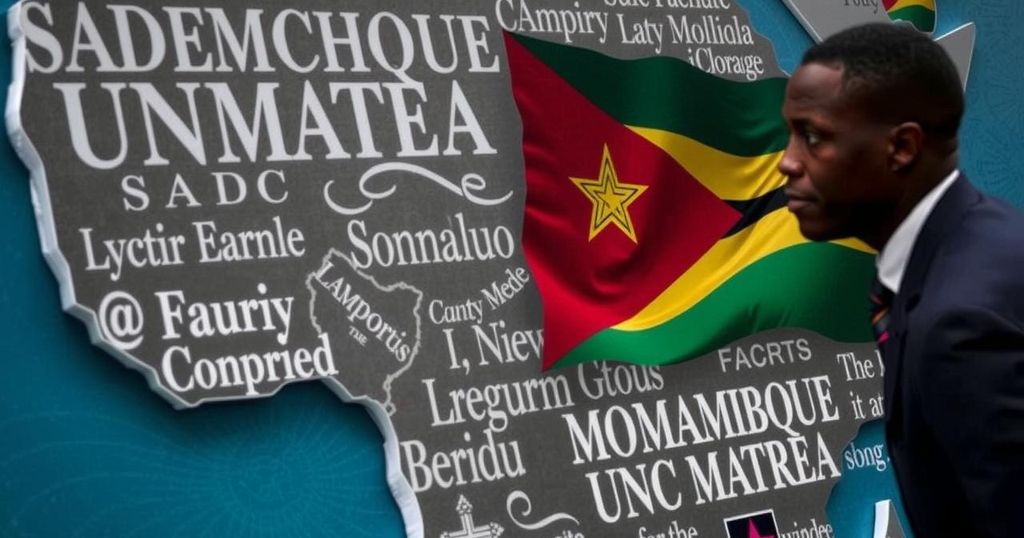Following the contentious October elections, Mozambique is experiencing severe post-election violence, resulting in over 100 fatalities. Leaders, including Zimbabwe’s President Mnangagwa and South African officials, have called for urgent dialogue to address the unrest. Amnesty International has condemned police brutality towards protesters, while experts stress the need for peace to restore economic activities in the region.
Zimbabwean President Emmerson Mnangagwa, currently chairing the Southern African Development Community (SADC), announced that the regional bloc stands ready to support Mozambique, which is reeling from post-election violence that has resulted in over 100 fatalities among protesters, as reported by human rights organizations. South Africa has also urged for dialogue in Mozambique, a former Portuguese colony, where the opposition has alleged electoral fraud following the dominant Frelimo party’s declared victory of 65% in the October elections by the Constitutional Council.
In a statement, President Mnangagwa emphasized the urgency of ending violence in Mozambique, while South Africa’s Minister of International Relations and Cooperation, Ronald Lomola, conveyed the country’s willingness to facilitate discussions aimed at establishing a peaceful political environment. He said, “South Africa calls on all parties to commit to an urgent dialogue that will heal the country and set it on a new political and developmental trajectory. Furthermore, South Africa is ready to assist Mozambique in any manner to facilitate this dialogue.”
Opposition leader Venancio Mondlane also weighed in, focusing on solidarity among citizens rather than internal conflict, urging collective action for change. Khanyo Farise from Amnesty International condemned the government’s excessive force against protesters, highlighting numerous instances of police brutality: “Since the outcome of the elections on Oct. 9, police have responded with excessive use of force… Many people have been seriously wounded, and over 110 people have been killed.”
Borges Nhamirre, a researcher at the Institute for Security Studies, pointed out the critical need for peace to reopen Mozambique’s ports and revive economic activities, stating, “The fastest way to solve this problem is dialogue. There is no alternative to dialogue.” With calls for peace from various parties, there is cautious optimism about the potential for a resolution to the ongoing crisis in Mozambique.
The current situation in Mozambique is marked by significant unrest following the October 2023 elections, where the ruling Frelimo party claimed victory amidst allegations of fraud from opposition parties. The violent clashes that ensued have raised concerns regarding human rights and the political climate within the country, drawing attention from regional organizations such as SADC and the African Union. As Mozambique grapples with the impact of these events, calls for dialogue and peaceful resolutions increase in both domestic and international arenas.
In summary, the ongoing violence in Mozambique post-elections has prompted urgent calls for dialogue and support from the SADC and South Africa. Key leaders, including President Mnangagwa and Minister Lomola, have expressed their commitment to facilitate discussions aimed at restoring peace. Meanwhile, human rights’ advocates continue to highlight the brutal measures taken against protesters, complicating the path to reconciliation. The situation underscores the necessity for collaborative efforts to revive Mozambique’s political stability and economic prosperity.
Original Source: www.voanews.com






